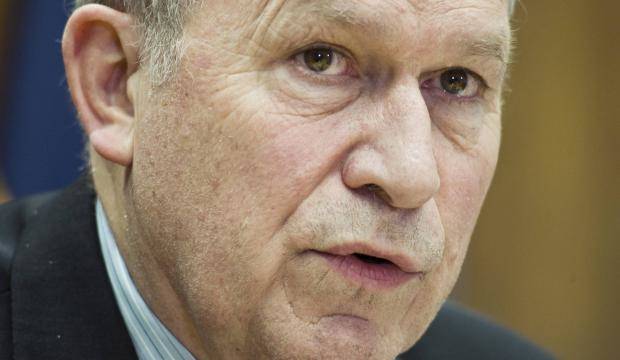Despite a pending lawsuit, Gov. Bill Walker on Wednesday signed legislation allowing the state of Alaska to borrow up to $1 billion in order to pay tax credits promised to oil and gas companies.
Those credits were pledged to smaller firms during the flush years of the late decade, but after oil prices plummeted and the state accrued a multibillion-dollar deficit, Walker vetoed more than the minimum contribution toward the debt.
Many companies had leveraged the promised credits, using them as collateral for loans, and Walker’s actions pinched them financially. A few declared bankruptcy.
Last week, Walker signed a suite of bills that sliced the state’s on-the-books deficit to $700 million per year and opened the door for Wednesday’s action.
The signing took place at Laborers Local 942 in Fairbanks, signaling the governor’s message.
“Alaska turned a corner this year, and we’re ready to tackle the future with new investment and new jobs,” Walker wrote in a statement shared on social media. “We are closing old debts to independent oil and gas entities, helping companies invest in their operations, and putting Alaskans to work.”
Mike Barnhill, deputy commissioner of the Alaska Department of Revenue, spoke with the Empire by phone Wednesday and referred to testimony given during the legislative session. In that testimony, bankers suggested that approving the bill could make it easier for oil companies to raise capital for new projects.
Though the Legislature has approved it and the governor signed it, HB 331 now faces a challenge in the third branch of government. Two Juneau men have sued the state, arguing that HB 331 borrows money for an unconstitutional purpose.
Eric Forrer and Joe Geldhof told the Empire in late May that they don’t have a problem with repaying the oil companies; they object to the way the state is borrowing to pay for the tax credits.
Reached Wednesday by phone, Forrer said he wasn’t surprised by the governor’s signature, given that he had requested the legislation in the first place.
“I’m not attacking this governor. I’m not angry with this governor. I intend to maintain a civil approach to this issue and let it get resolved by reasonable argument in the courts,” he said.
Forrer said his determination hasn’t wavered since he last spoke with the Empire.
“I’m emphatically committed to this,” he said. “I’m going to the supreme court if necessary.”
Austin Baird, a spokesman for the governor, said by phone, “the governor is confident that the courts will side with the department of law and rule that HB 331 is constitutional.”
If the court battle is a protracted one that prevents the state from borrowing money, oil companies won’t be left entirely in the lurch. The state’s operating budget, approved by lawmakers, contains contingency language that calls for up to $100 million to be paid from the state’s general fund if bonds are not issued before June 30, 2019.
• Contact reporter James Brooks at jbrooks@juneauempire.com or 523-2258.

